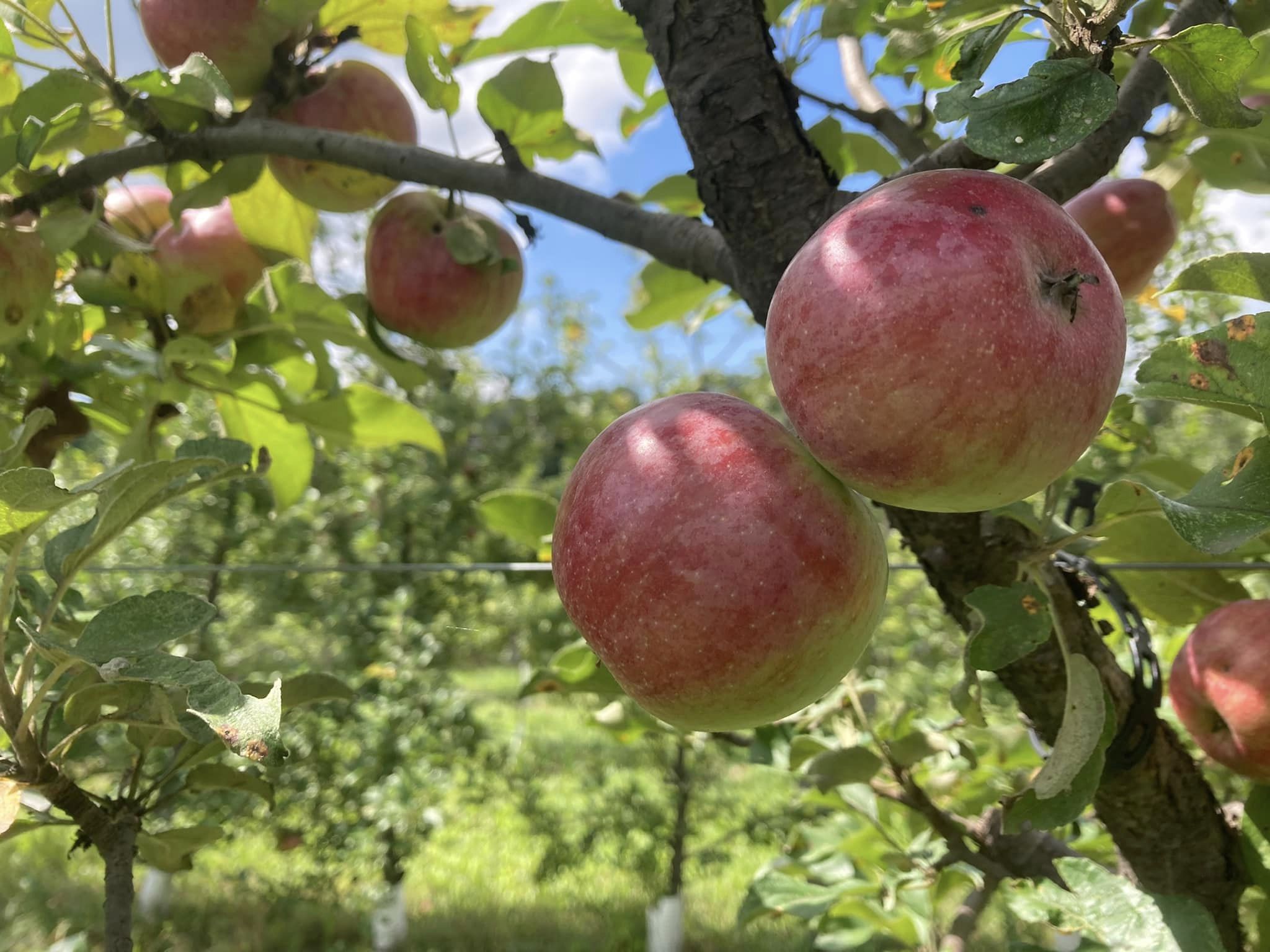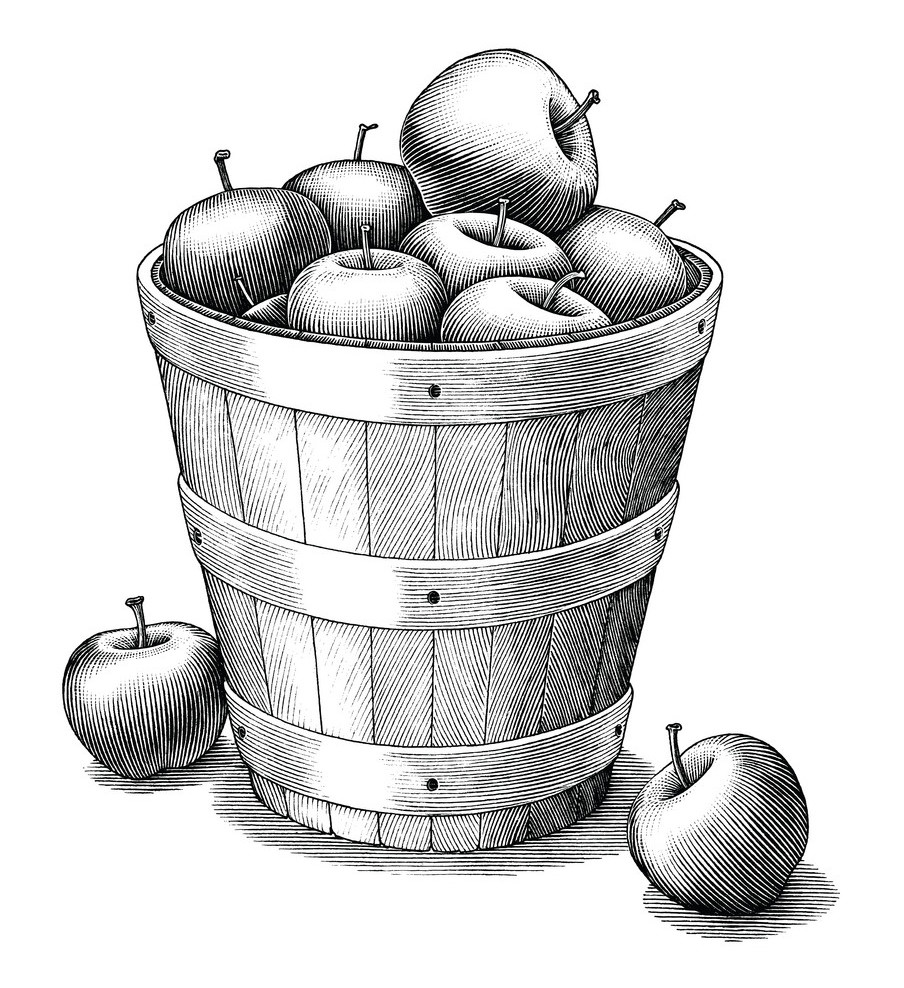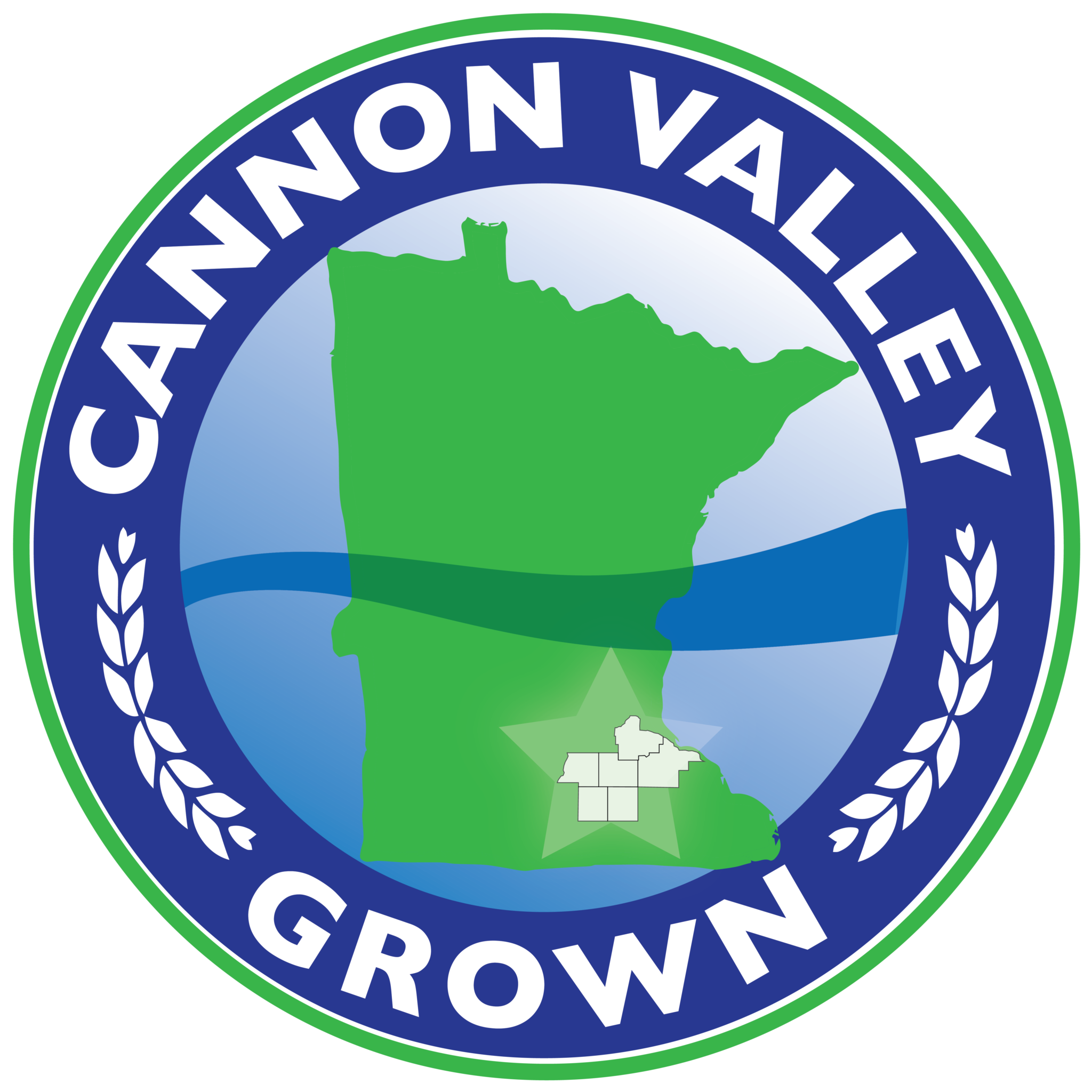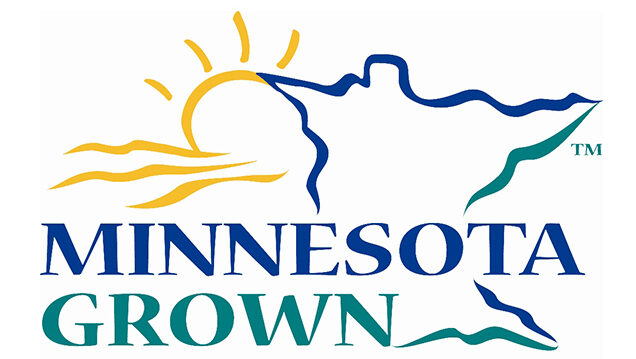IT ALL BEGINS WITH
Our Fruit
We grow apples, pears, plums, grapes, and berries on our organic farm, but apples are by far our primary focus. Much thought goes into sourcing and growing them.
Using only distinct local varieties, the orchard was planted with a glass of cider in mind, so many of our apples are cider specific.

Our namesake — the Keepsake Apple — was introduced by the University of Minnesota. This hardy apple with a great storage life gives a complex, sweet taste to cider. While not the best-looking apple, it is one of the tastiest. We love this apple.
LEARN MORE ABOUT
Our Process
We make our ciders using all local apples and a specially-designed press.

Pressing
The apples we select are a range of cider bitter sweets, heirloom, crab, and modern dessert apples that we believe all contribute to a distinct, delicious Minnesota Cider. We press 100% of our own juice. We wash, grind, sometimes macerate, and press our fruit. No additions of sugar, water, acids, or yeast. Just cider goes into the tanks. Pressing season begins in September and ends early Winter.
Aging
Our ciders age in stainless steel tanks with some blends aged in HDPE tanks and oak barrels. The aging process can take up to 3 years depending on the cider. On average, our ciders are released 12-18 months after pressing. During the aging process we are blending to find the best expression of that year’s harvest, from our perspective. Occasionally we are aging/co-fermenting the cider on fruit and other local ingredients, but most of our ciders are apple only.
Finishing
Our dry ciders are bottled in the ancestral sparkling method giving the finished dry cider a pet-nat bubble. Occasionally, we will release a traditional method style blend giving that cider a champagne like bubble and presentation. Most of our medium ciders are bubbled up naturally in a Brite tank using Charmat Method, while some are carbonated. Seasonally we release a can blend and a bagged cider.
Ashmead’s Kernel
English dessert apple with a long tradition in cider. Trees of Antiquity claims,” Fruit explodes with champagne-sherbet juice infused with a lingering scent of orange blossom.” Sound good?
Chisel Jersey
An English Bittersweet that grows and produces well in our orchard. Lots of tannin, very little acid and good sugars. One of our favorites for cider.
Crimson Gold
There is a certain amount of confusion around this apple. It is not the Albert Etter crab apple. This apple originated in Czech Republic, they are a medium sized, paper dry fleshed apple with complex and spicy flavors and a crunch.
Dabinett
Steve Wood, the grandfather of this era’s craft American cider from Farnum Hill Cider, says this bitter sweet English apple is the bittersweet apple to plant. So, we did. It does not grow well here, only a handful remain, but they are fantastic apples.
Enterprise
A modern apple with very little issues with disease. Easy to grow bushels and bushels. Its parents include McIntosh, Golden Delicious, Starking Delicious, and Rome Beauty.
Freedom
1958 cross with Macoun, Golden Delicious, Jersey Black, and Antinovka in its pedigree. Great diseases resistance for organic growers.
Golden Russett
Classic American Apple possibly from English russet seedling found in New York. High sugar and acid, famous for great cider.
Grimes Golden
Originated in West Virginia around 1830 and thought to be the parent of Golden Delicious. Rich, spicy and tangy.
Haralson
Classic Minnesota apple. Unique acidity. We use sparingly in the cider, but love to eat them.
Honey Crisp
University of Minnesota 1991 Minnesota State fruit! Well balanced and delicious. Perhaps you’ve heard of it.
Liberty
Cornell 1970’s. An organic growers dream as it is highly resistant to many diseases. Classic Macintosh-New England taste. Its parent is the Macoun, a childhood favorite of Farmer Nate, so it had an unfair advantage.
Nova Spy
Nova Scotia 1986 resistant to many diseases and potential to make wonderful cider.
Sweet Sixteen
University of Minnesota in 1979. This apple is a delight to eat with flavors of tropical fruit and vanilla, and we are excited to try it in our blends.
Wickson Crab
This little apple was developed by Albert Etter. What it lacks in size it makes up in taste and sugar level. Its sweet and tart and unique. Cider makers love it, and some even make ciders only with Wickson apples.
Yarlington Mill
Found by chance at the side of a mill in Somerset England. This bittersweet apple is hopefully winter hardy and definitely fantastic in cider.


4609 135th St E, Dundas MN 55019 | keepsakecidery@gmail.com | 413-552-8872
